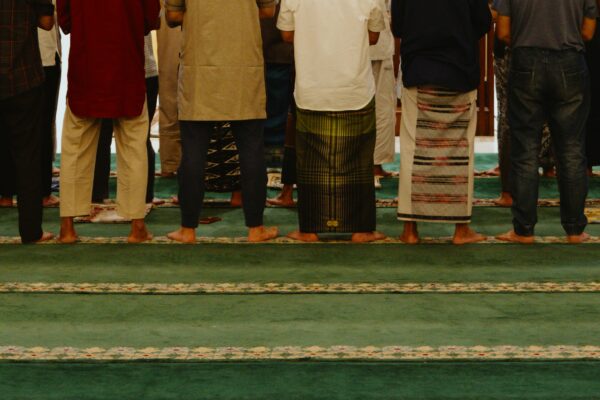“Accord them equal treatment so that the elite should not expect injustice from you in their favour and the low should not be despondent of your justice to them” (Letter 27, Nahj al-Balaghah).
“Accord them equal treatment so that the elite should not expect injustice from you in their favour and the low should not be despondent of your justice to them” (Letter 27, Nahj al-Balaghah).
In part one we looked at how the Qur’an addressed the Ansar and Muhajiroon on remaining united before disunity should enter. In part two we observed the Islamic social order of being part of the unity of creation and the attitude of a believer toward a fellow believer, even though they may be at odds with each other.
In this final part we will address the matter of community elections, drawing on lessons and how the Qur’an responds to the elites of a community being self-serving. This will give a fragmented community insight as to how the Qur’an provides practical guidance on navigating leadership contests that often divide our community.
The obligation of taking lessons from similar events
It is a well known trope that history repeats itself. One of the benefits of this is to learn from these events, and to not make the same mistakes or allow the same pitfalls to reach your own community.
Imam Ali (a) stated in this regard, اِعْتَبِرْ تَزْدَجِرْ “Take lesson and you will be deterred [from evil]” and اِتَّعِظُوا مِمَّنْ كانَ قَبْلَكُمْ قَبْلَ أنْ يَتَّعِظَ بِكُمْ مَنْ بََعْدَكُمْ “Take lessons from those who preceded you, before those who are after you take lessons from you.”
This means that if you do not learn to amend practises, those who come after you will point at you as means of avoiding your ways, the same way you do to those before you. We learn from this that there is a difference between simply knowing or pointing out problematic behaviours and actually changing these repeated events for it to not become a generational practise.
Only those who fear Allah (swt) will truly take heed of their community role
Surah al-An’aam speaks of the early Meccan period. In verse 51, Allah (swt) addresses the Prophet (s) and tells him (s) to warn by the Qur’an those who fear being presented before Allah (swt) on the Day of Judgement. This is different to him (s) being told to warn those who do not fear or astray. This is of interest because we normally expect the Prophet (s) to address the heedless; not in this instance. Rather he (s) is told to address those who already have the quality of fear of being taken to account.
وَأَنذِرْ بِهِ الَّذِينَ يَخَافُونَ أَن يُحْشَرُوا إِلَىٰ رَبِّهِمْ لَيْسَ لَهُم مِّن دُونِهِ وَلِيٌّ وَلَا شَفِيعٌ لَّعَلَّهُمْ يَتَّقُونَ
“And warn with it those who fear that they shall be gathered to their Lord – there is no guardian for them, nor any intercessor besides Him – that they may guard (against evil).”
This is because, as per the conclusion of the verse, they will listen and pay heed to the Qur’an and so it will only increase them in their fear to a higher state of God-consciousness, or Taqwa.
What is being said here is that there are those who no matter what you tell them, or who warns them, or how they are warned, they will never pay attention. They consider themselves to be the arbiters of Truth and Falsehood! Only those who have fear of their accounting will benefit. We are invited to choose which group we wish to be in community affairs.
The needs of the Muslim community is given priority over the elite club
The subsequent verse addresses an event where the Prophet (s) was sitting with his poorer companions and the elite of the Quraysh sought an audience. They demanded the Prophet (s) send away his companions on account of their lower social status so they may speak with him, not wishing to be sullied by their presence. The verse was immediately revealed:
وَلَا تَطْرُدِ الَّذِينَ يَدْعُونَ رَبَّهُم بِالْغَدَاةِ وَالْعَشِيِّ يُرِيدُونَ وَجْهَهُ
“And do not drive away those who call upon their Lord in the morning and the evening, they desire only His favour.”
The literal meaning of this verse is that protecting the sincere, poor, and striving believers is more important than the probable attraction of some rich pagans. The principle however, is the needs, rights and demands of the grassroots takes precedent over the demand and self-protection of the elite. Never should the existing believers be scorned for the attraction of the dominant elite class and their merry-go-round of power.
Previous prophets (s) stated exactly the same at the demand of their community elites to remove those deemed worth less (see Qur’an 11:29 and 26:114): وَمَا أَنَا بِطَارِدِ الْمُؤْمِنِينَ
This ensured that powerful elites in a community do not have their selective interests protected, and is mentioned many times by Imam ‘Ali (a) to his governors, including Mohammed ibn Abi Bakr in Egypt saying, “accord them equal treatment so that the elite should not expect injustice from you in their favour and the low should not be despondent of your justice to them” (Letter 27, Nahj al-Balaghah).
Taking lessons from other elections
Our communities often get divided at competing personalities for leadership. As we learnt above, we are obligated to take lessons from other such leadership contests.
In the 2016 US election, voters were almost never informed of policy positions of candidates by the media, who preferred to drum up controversy instead. One research looked at 13,481 mainstream articles and found the vast majority discussed two overriding matters:
1) The “horse race” such as the overall likelihood of victory of the candidates, with details of intra-party conflicts and polling.
2) Personal/Scandal articles focused on the controversial actions and/or statements of the candidates either during the election itself or prior to it, and the fallout generated by those controversies.
Rarely ever, was there focus on policy issues such as healthcare, immigration, taxation, or education.
As an example, of the 150 front-page articles that discussed the campaign in some way, over half (80) we ‘horse-race’, a third (54) were personal/scandal, with just over 10 percent (16) of articles discussed policy, of which six had no details – only four provided details [1].
One of the key practical ways to overcome strife in our communities is to focus less on personality, scandal, family name, tribe and ethnicity, and instead on the policy positions and agenda of those who seek our support.
The Qur’an asks us to test people’s credentials before giving them support
Candidates often say they stand for things: the poor, unity, or a particular project. It is necessary for such leaders to be trusted in these matters and that has to be ascertained before and not post-facto. This is achieved by testing and examining whether they truly stood for such values before their campaign. The Qur’an states:
وَابْتَلُوا الْيَتَامَىٰ حَتَّىٰ إِذَا بَلَغُوا النِّكَاحَ فَإِنْ آنَسْتُم مِّنْهُمْ رُشْدًا فَادْفَعُوا إِلَيْهِمْ أَمْوَالَهُمْ
“And test the orphans until they attain puberty; then if you find in them maturity of intellect, make over to them their property” (4:6). This teaches us to test such claims and requests and upon evidence of capability to make over to them their demands.
One of the great stories of testing a person’s truthfulness and character was upon Mulla Naraqi, author of the great Akhlaqi work, Jami’a Sadaat [2].
One day he visited a leading scholar. Upon entering he was given due respect and consideration from everyone except from the scholar he came to visit. No salutation, no engagement. Mulla Naraqi waited patiently until he had to leave. The second day he returned and again no attention was paid to him by the scholar.
On the third day again he was ignored completely until the scholar offered his explanation saying, ‘You are the author of such a great book of manners and etiquettes. I wanted to test whether you practised what you preached and so was rude to you to see you reacted.’
In this way, knowing the true character of those who seek our support would aid us during leadership contests and not be divided into personality or clique wars.





